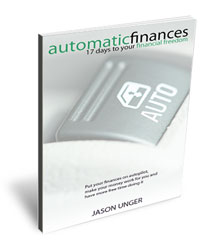
Having a baby is one of the biggest life-changing situations you can experience.
It’s no longer just about you — it’s about this new person you’re bringing home from the hospital to be a part of your family.
With the additional responsibilities are, of course, additional costs. It’s not cheap to raise children — everything from food to clothing to shelter to the expenses of life add up.
If you’re in a position to help save for your new child’s future, then get started right away.
Over on Quora, a user wanted to know how …
If you forgive the odd grammar, it’s a great question. Here’s how.
What’s the Best Investment for a Newborn Baby?
I’m assuming a few things about your situation …
- You’re American, or can invest in the US
- There’s not a specific goal (college, retirement, etc) you have in mind for the money
- Tax savings would be nice, but not required
Here’s what I would do.
First off, I am not your advisor. So consider this answer knowing that.
Second off, you should consider exactly what your goal is before you do anything.
Right now, it seems like you’ve got a generic goal — start investing for my newborn in a fund that won’t be touched for 30 years — but that’s not specific enough.
OK, now that that’s out of the way.
You’ll want to open a custodial account; essentially, an investing account that you control but is for the benefit of someone else.
For a 30-year time frame, your best bet is to buy index funds. These are mutual funds that track indexes (like the S&P 500 or the Dow Jones Industrial Average).
Why index funds? Here’s what Warren Buffett — easily the brightest mind in investing ever — has to say:
Buffett says an index fund is a way to avoid the risk of picking individual stocks.
“The trick is not to pick the right company, the trick is to essentially buy all the big companies through the S&P 500 and to do it consistently and to do it in a very, very low cost way,” he added.
Buffett points to the fee savings built into low-cost index funds. The largest such S&P 500 fund, Vanguard’s 500 Index Fund, boasts expense ratios of less than a percentage point.
You know what else is great about index funds?
They have low fees.
They’re not actively managed, so you’re not paying anyone to make decisions about which stocks to buy and which to sell. It all gets done automatically.
As Buffett (again) says, fees are the silent killer that eat away at your investments.
“Just remember, the person you’re talking to, your fees are their income,” the billionaire said.
“And it leaves your pocket and goes to them and you’d better get something for it. And you really don’t get it in investment management,” he said. “The record shows that the unmanaged index fund is going to do quite well over time and active investment as a group can’t beat it.”
(By the way, here’s some secrets fund managers don’t want you to know.)
Asset allocation matters.
Again, I don’t know exactly what you’re planning to use the money for or if it will all be taken out once the 30 years are up, so consult with a financial advisor to get specifics.
But if you’re expecting to be able to regularly withdraw money from the account after the 30 years, then your asset allocation is important.
Early on — when your baby is born — you’ll want to invest more in stock funds and less in bond funds. As it gets closer to the 30 years, you’ll want to invest gradually less in stock funds and more in bond funds.
That way, you’re less likely to get a huge drop-off in your savings if we go into a recession or market downtime when you’re ready to pull money out.
Taxes matter.
Be aware that your fund will likely be subject to the “Kiddie Tax“.
The Kiddie Tax is applied to the amount of your child’s unearned income that exceeds $2,100. The Kiddie Tax rate is your marginal tax rate (the highest rate applied to the last dollar you earned) which could be as high as 39.6%.
For example, if your 13-year old daughter had $3,000 in unearned income last year, $900 of that would be subject to the Kiddie Tax. In the highest tax bracket, the Kiddie Tax on that amount would be $356.
Congratulations (I assume) on the newborn, and great job thinking about how you can save for them.
Photo by Liane Metzler on Unsplash



